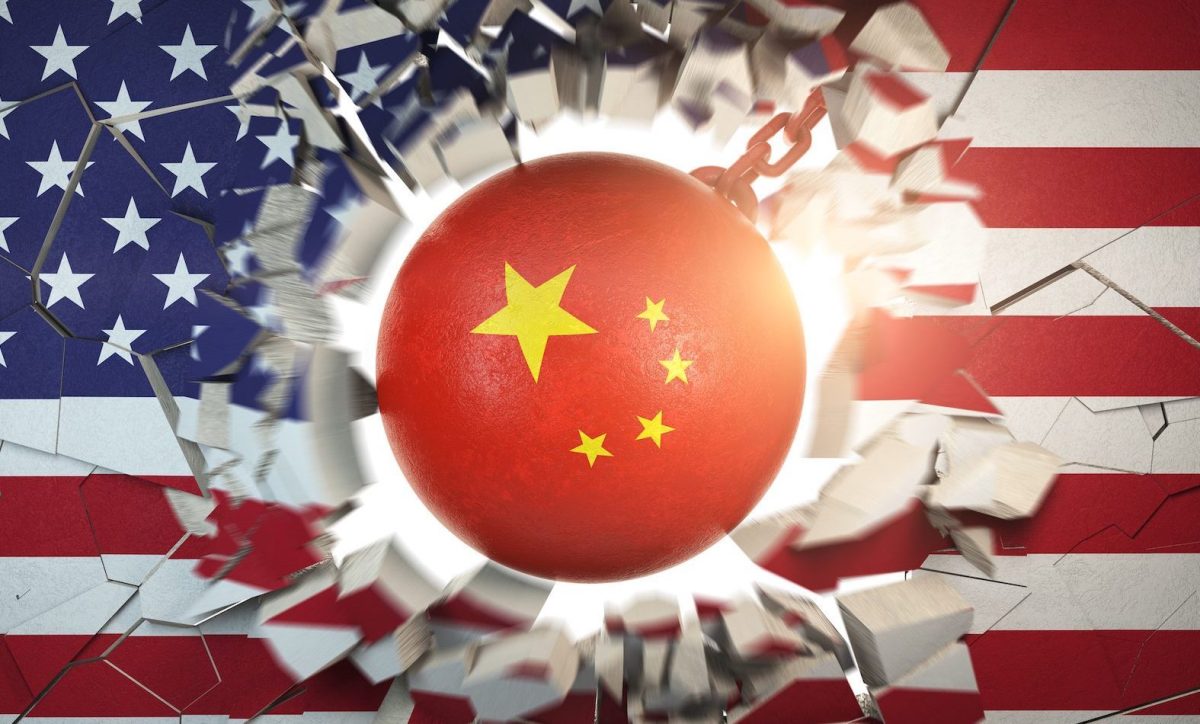[ad_1]
Maintaining Donald Trump’s tariffs on US$350 billion worth of Chinese-made goods and implementing a “buy American†policy are exactly the opposite of what the doctor prescribes for the new administration of US President Joe Biden, at least from an economic perspective.
A case in point is a February 1 South China Morning Post opinion piece, citing a Peterson Institute of International Economics study revealing that US consumers paid a whopping $94 billion more for goods and services, or $250,000 for every job “saved†by Trump’s “Made in America†policy. Since Biden’s “buy American†is a similarly protectionist policy, there is no reason to believe it will not have the same effect.
The world already knows about the negative effects of Trump’s tariffs on Chinese-made goods, raising production costs and consumer prices and putting farmers at financial risk, all of which led to economic slowdown, made worse by the Covid-19 pandemic, culminating in the US economy recording its worst contraction since the 1930s Great Depression.
Why Biden chose to defy history and economic logic will likely be debated by scholars, but domestic politics and America’s obsession with global dominance might have something to do with it.
Though Democrats and Republicans might be at each other’s throats on domestic policies such as medical insurance, they are on the same page on foreign policies, especially those pertaining to China. For example, anti-China policies such as listing the communist giant as the “greatest threat to the US†not only have bipartisan support, but also that of the majority of the American public.
According to a recent Ipsos poll, for example, 54% of Americans feel China’s rise is the biggest threat to the US.
Furthermore, the majority of Americans truly believed Trump’s unsubstantiated claims that China was responsible for the Covid-19 pandemic and the economic fallouts it caused, and that China “ate America’s lunch.â€
Additionally, Republican lawmakers in Congress are eager and willing to trounce any “soft†policies that the new Biden administration might have in store for China.
Equally noteworthy is that Biden has inherited a deeply divided country, in that almost half of Americans believed Trump’s baseless claim that the November presidential election was stolen from him. In this regard, Biden would be constrained from deviating the former president’s policies, particularly those with respect to China.
Too, many Americans, particularly white blue-collar workers, detest the political and business establishments’ selling them out. The business community’s decision, with the blessing of politicians, to relocate production abroad and automate jobs at home were largely responsible for hollowing out manufacturing and associated jobs.
Rightly or wrongly, Trump supporters have branded Biden as part of the political establishment that sold America out.
Indeed, the cult-like QAnon movement and far-right groups such as the Proud Boys see Trump as their Messiah, “standing back and standing by†to defend the former president and his policies, as the January 6 “insurrection†in Washington attested. So repealing Trump’s tariffs could spark violent protests across the country. Again, Biden has little choice but to institute a “buy American†policy and keep Trump’s tariffs on Chinese goods.
The fact of the matter is that Trump’s trade war against China garnered huge support, even though the tariffs brought nothing but grief: rising poverty and putting farmers at financial risk were just two of the harms that the former president’s policies caused. It was seen as protecting America from being “ripped off†and a crusade to “Make America Great Again.â€
Given these political realities, Biden would not and could not abandon any of Trump’s anti-China policies any time soon, because in doing so, he would not only be fiercely opposed by Congress, but would also be seen as a sellout by staunch Trump supporters. That, in turn, would derail any chance of Biden gaining bipartisan support for his policy agenda and make it difficult for him to govern a divided country.
Furthermore, American politics is such that presidents are obligated to promote and protect US hegemony, disallowing any country to be in a position to challenge US global dominance in any field. Trump’s trade wars against China had nothing to do with trade deficits or bringing manufacturing home, but were mounted to stifle China’s economic rise.
As well, former president Barack Obama’s “pivot to Asia†policy was meant to contain China’s influence in the Asia-Pacific region. Biden’s vow to regain US leadership in the world is just another term for American dominance.
Biden is between a rock and hard place on the China issue. Being tough on China would gain political points, but will be disastrous for the US economy. Being “soft†on China, on the other hand, would likely kill any cooperative efforts between the anti-China Congress and the new administration.
However, the fact of the matter is that being tough on China will go nowhere: The country is simply too big to be bullied and it can hit back. Sanctioning 28 former Trump officials, including his secretary of state Mike Pompeo, was a clear message in that regard.
If Biden is sincere about pursuing policies that would improve America’s national interests and security, he has to find some common ground with Beijing to reset the US-China relationship. China’s foreign-policy chief, Yang Jiechi, said as much in a recent dialogue on US-China relations.
Taking the debate to its logical conclusion, Biden placing politics over economics will not be helpful in achieving his campaign promises of economic recovery.
Ken Moak taught economic theory, public policy and globalization at university level for 33 years. He co-authored a book titled China’s Economic Rise and Its Global Impact in 2015. His second book, Developed Nations and the Economic Impact of Globalization, was published by Palgrave McMillan Springer.
[ad_2]
Source link











